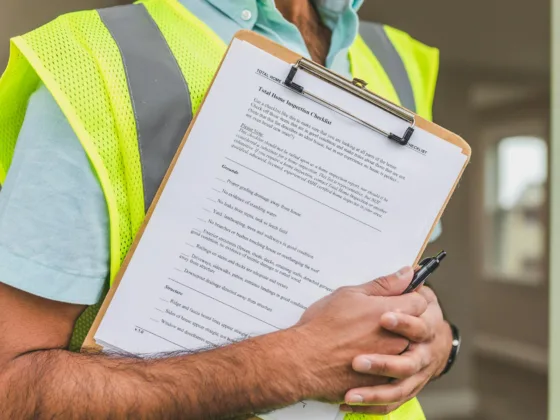Table of Contents Show
Whether you’re a buyer or seller, you probably know how complex the residential real estate market is. Buying a home is a complicated process involving numerous documents, filings, and issues, and for most people, it’s the investment of a lifetime. With help from a real estate attorney and the general guidelines below, buyers and sellers will know what to expect during residential closings.
What is a Residential Closing?
When selling or buying real estate, closing is the last step before the transaction is finalized. Once the buyer’s offer is accepted, a contract is prepared, presented, and signed, and the closing date is set. With help from the team at https://affordableclosing.com, sellers and buyers can close deals securely and effortlessly.
The Closing Process
Before closing on a home, buyers can expect to go through the following steps.
1. Signing the offer:
When someone wants to buy a house, they submit an offer to the seller. If the offer is accepted, the transaction begins with contract creation. Real estate contracts contain information on closing dates, inclusions and exclusions, completion deadlines, and contingencies.
In New Jersey, homebuyers have up to 72 hours to have purchase contracts reviewed by attorneys. This three-day period allows lawyers to evaluate contracts, negotiate contingencies, and protect clients’ rights.
While inspections aren’t required by law, they’re still a good idea. Home inspections uncover hidden problems and allow buyers to renegotiate contracts for more favorable terms.
2. Obtaining financing:
Most buyers get mortgages to pay for their home purchases, and it’s best to start the process early on. You’ll need good credit, financial stability, an appraisal, and lender approval to get a mortgage.
Buyers must make earnest money deposits when submitting offers, and the amount is held in escrow until closing.
3. Title work:
It’s the buyer’s responsibility to ensure the home’s title is clear and unencumbered by loans, liens, and other claims. These issues can cause substantial losses if not uncovered, and your real estate attorney can help you avoid them.
When other steps are completed, the mortgage company notifies the buyer that their mortgage is approved.
4. The final walkthrough:
Before closing, the buyer and their agent will get a chance to walk through the home and verify repairs.
At closing, you’ll sign a few documents, including the deed, a title affidavit, a closing disclosure, a settlement statement, mortgage papers, and a 1099-S form. Once these papers are signed, the seller receives their money, the buyer gets the keys, and the sale is final.
Who Goes to the Closing and Who Pays?
Several parties may attend a residential real estate closing, including the buyer, seller, real estate agents, and attorneys. While most closings are done in person, remote closings are appropriate in some circumstances.
In New Jersey, buyers are responsible for some closing costs, including appraisal, mortgage application, and inspection fees, and they must bring a cashier’s check when closing. Lenders must offer good faith estimates early on, and the buyer will get a settlement statement a few days before closing so they know what to expect.
Consult a Real Estate Attorney
Working with a local real estate lawyer can make buying or selling a home easier. To learn how attorneys protect clients’ interests and rights during residential real estate transactions, contact us by phone or email and schedule a consultation.
FAQ:
A residential closing is the final step in the real estate transaction process where the sale is finalized. It involves signing various documents, transferring funds, and officially transferring ownership from the seller to the buyer.
Buyers can expect several steps before closing, including signing the offer, obtaining financing, ensuring clear title work, conducting a final walkthrough, and signing necessary closing documents.
A residential closing typically includes several parties such as the buyer, seller, real estate agents, and attorneys. In some situations, remote closings may also take place.
In New Jersey, buyers are responsible for various closing costs including appraisal fees, mortgage application fees, and inspection fees. They must also bring a cashier’s check for the closing.
A real estate attorney can help protect clients’ interests and rights during the transaction, assist with contract evaluation, negotiate contingencies, and ensure that all necessary legal documents are properly handled.










